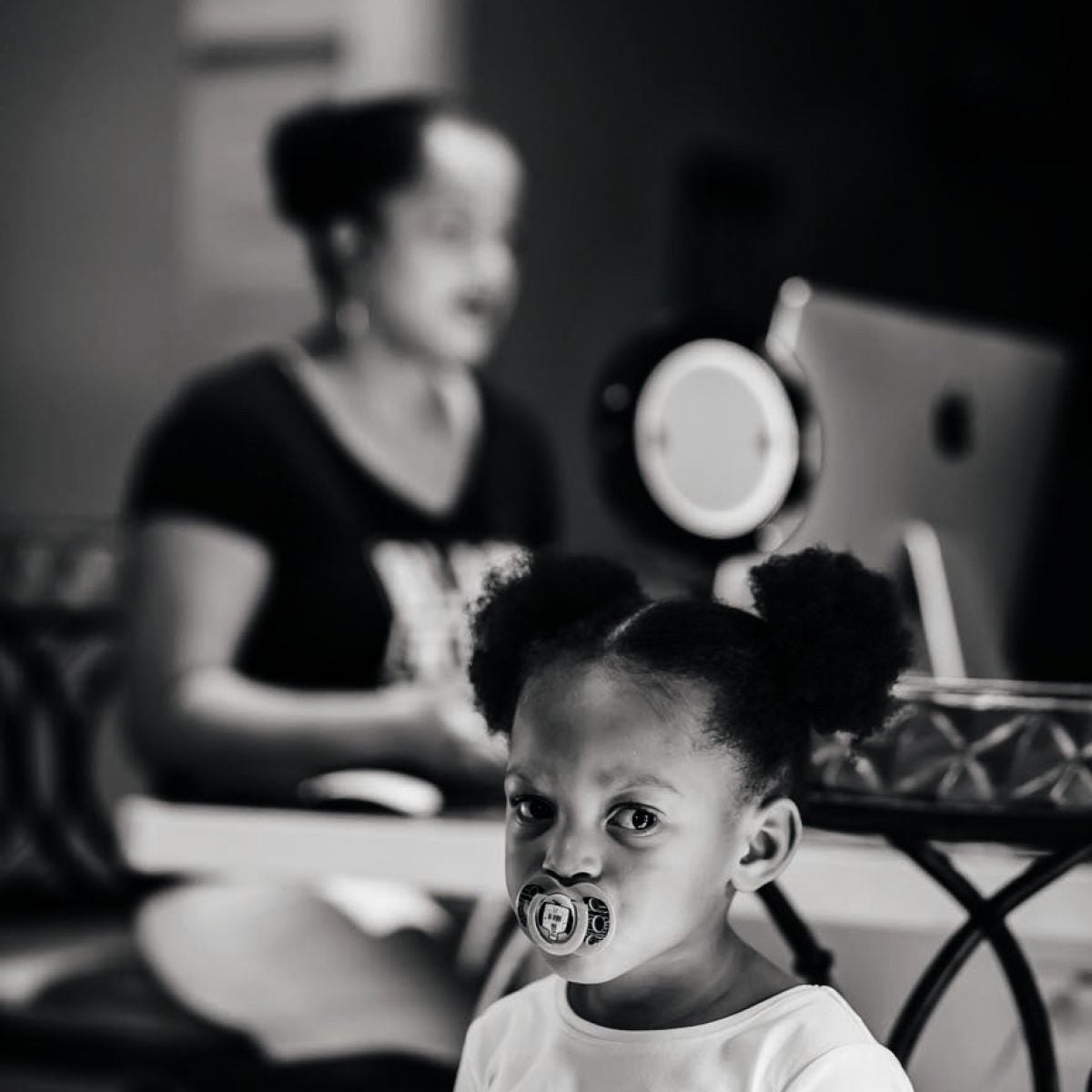Today, I survived another pandemic workday. As I finish this article at 4:30 a.m. and get into bed, I reflect on how the day started. I tiptoed in to peek at my sleeping five- and two-year-old, kissed my husband as he left to work in an essential role off site, then hurried to my home office, to get in as much work time as possible before our children awakened.
Thirty minutes into my first virtual meeting, I welcomed my two tiny coworkers. Business partners know that we are a package deal, as we can’t take the risk of enrolling our children in school or daycare. Of course, this means supervising virtual kindergarten and bathroom needs while I’m on the phone, and soothing occasional toddler meltdowns—but this was, thankfully, one of my less eventful workdays.
I love being a mother and have the privilege of working remotely as a social-justice consultant. However, having no childcare and being a full-time workfrom-home mom is unsustainable. Although I got through the day, the wear and tear on my health was real, and I deserve more than trying to survive the workday while also trying to survive a deadly virus. The lack of childcare to meet my family’s needs feels very isolating, but it is a widespread issue that is creating a pandemic within a pandemic for working mothers. I know that I am not alone.
According to a report released by the Century Foundation and the Center for American Progress, four times as many women as men “dropped out” of the labor force in September. Those of us who have no childcare while working full time don’t have to ask why. Due to systemic inequalities that have created a lack of generational wealth and unequal pay in our communities, Black women are not likely to opt to drop out of the labor force, as we are more likely to be the sole breadwinners in our families. And Black mothers are twice as likely as white women to be responsible for their family’s childcare and housework during COVID-19.
Systemic barriers created by policymakers, such as racial income gaps, lack of paid leave and lack of affordable childcare, exacerbate the situation for working Black mothers. With daycare costs averaging more than $9,000 a year, and only 52 percent of Black women saying they have enough income to support their basic needs during COVID-19 (compared to 78 percent of white women), many of us can’t afford childcare. Lower-income parents report that they will no longer be able to manage the cost of prepandemic childcare arrangements, compared to middle- and high-income parents. This will likely force many families to leave their children in unreliable childcare settings.
The result: Many Black women are experiencing extraordinary levels of stress as they shoulder the weight of these challenging times without adequate childcare. This could worsen already abysmal maternal health outcomes for Black women of childbearing age—mothers who, even in the midst of a pandemic that disproportionately threatens our lives and those of our loved ones, still have to play the role of superwoman.
Frankie Robertson (@frankieBRLA) is the founder and president of the Amandla Group, a social-justice consulting firm addressing the social and political determinants of health through policy, research and advocacy. She serves as a technical assistance consultant for National Birth Equity Collaborative.
Source: Read Full Article

